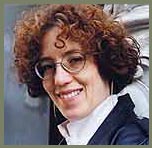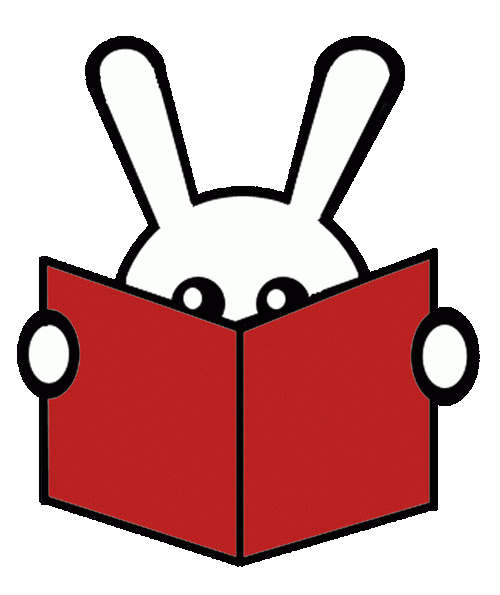Madeleine Robins: Central Jurassic Park
Interview by Amanda Divine, Adventures Underground
Madeleine Robins is the author of two mysteries, Point of Honour and Petty Treason, featuring the redoubtable Sarah Tolerance, Fallen Woman and Agent of Inquiry, on the mean streets of Regency London. In addition to the Sarah Tolerance books, Robins is the author of The Stone War (a 1999 New York Times Notable Book) and six other novels. A native New Yorker, she is a recent transplant to the Bay Area, where she lives with her husband and daughters, and a cranky lemon tree.

Amanda Divine: You have written across several different genres, including romance, mystery, and science fiction / fantasy. Do you have to change your frame of mind when you switch from one to another, or do you keep pretty much the same style and purpose throughout your writing?
Madeleine Robins: I'm not aware of changing my frame of mind, precisely. Or rather, I don't think in terms of what genre I'm writing in when I start a project: I get an idea and start writing and worry about what the market will be later. The things that power me into and through the writing of a story or a book are different each time; sometimes it's a first line, sometimes it's the feeling I want to walk away from the story with, sometimes it's a situation I want to play with. As I write, all these things come into play, but there's usually one that gets the ball rolling. And it changes each time. Of course, different projects require different voices and styles - the Sarah Tolerance mysteries are written in a very specific voice keyed to the period (1810); it's a rather chatty, opinionated voice. By contrast, my Daredevil novel, The Cutting Edge, has a transparent modern voice, and The Stone War, a dark urban fantasy, was written in a slightly dreamier version of that modern voice. When I'm writing, I don't think in those terms, however; I write the way the story makes sense to me, and make pronouncements about how I did it later.
Amanda: If you start out with an intent to evoke a feeling, is it a general, abstract idea that you flesh out as you go along, or...?
Madeleine Robins: I can be pretty specific, actually. I don't want to teach lessons, but I do want to send a reader away with a sense of my point of view and my ideas, and that starts with feelings. I started out The Stone War wanting to convey my love for my home town (that would be New York City), but as I thought about love of place I began to wonder about the kind of person who would privilege love of place over love of person or persons. At the end of the book, if I've done my job, you're left understanding both the protagonist's passionate love for the city, and his love for the people he collects around him.
Amanda: How much do your stories change as they progress?
Madeleine Robins: Lots - depending on the story. Usually I know approximately where I'm heading, but how I get there can change wildly from my first thoughts on the story. I think of this as the difference between the landscape - the emotional arc of a story - and the roads you take to travel across it - the plot. There are only one or two stories I can think of that stayed pretty much the way I'd planned them from beginning to end; stories I begin with a line, or an idea, are likely to change a lot. Stories I begin with a last line or a last scene are less likely to change in major ways.
Amanda: How much research do you do for you books? Do you do it as you go along, or before you even get a word on paper?
Madeleine Robins: Tons. Of course, how much and about what depends on what I'm writing. For the Sarah Tolerance books I have a good background knowledge of the English Regency, but I'm always adding to it, and as I write I keep notes on things I need to find - anything from street addresses to the birth order of the Royal siblings to whether a specific word was in use at that time. Research isn't only reading or taking notes: when I was writing The Stone War I walked all over New York, taking tours, finding architecture I liked and learning interesting bits of stuff about the city. I bought maps of the tunnels under Central Park from the Parks Department. And - did you know that there are the remains of six life-size granite dinosaurs buried under Central Park? Long (and to me fascinating) story. And last summer when I was in London I walked all over, taking pictures of relevant sites and getting a sense of walking distances between various places in the city. It doesn't all show up on the page, but it does give me a comfortable platform from which to begin.
Amanda: It sounds as though you really enjoy the research part.
Madeleine Robins: I adore it. I am by nature a magpie for information, most of it useless until I'm writing something. Writing lets me find out about anything that interests me. And one of its unexpected benefits is that people will tell you -anything- if you say you're writing about something. I got into a museum in Paris on a day they were closed because I was a writer, was leaving the next day, and desperately wanted in (and I accomplished all this in 11th grade French. Go me). When I was writing The Cutting Edge I wanted to know the protocol for a lawyer going to Rikers' Island (where suspected criminals are kept before and during their trials). So I called a lawyer friend who didn't handle criminal cases, who called a criminal lawyer friend who called me and talked for an hour and a half, telling me more than I could possibly have hoped for about the protocols, security, ID, layout of the prisons and so on. One of the more ghoulish things about writers (and actors) is that anything they live through is research - have an emergency appendectomy? You know something about excruciating pain. Been mugged or been in a car accident? You know something about the weird ways time expands and contracts when you're in an extreme situation.
Amanda: Where did your background knowledge of the English Regency spring from? Was that part of your official schooling?
Madeleine Robins: I fell in love with the Regency when I was in my early teens, a combination of Jane Austen and Georgette Heyer and (a little later) Jane Aiken Hodge, who wrote romantic suspense set in the Georgian and Regency eras. I started reading about the period at that point, and when I got to college I took English History from a terrific professor who was happy to let me write papers about topics that interested me...like the Regency. I was a theatre major, and managed to work some costume design and construction (of Empire-style costumes) into my curriculum. But an awful lot of what I've learned has simply come from reading all manner of stuff: I particularly like biographies and letters. Once you start reading one thing it will lead you to something else, raising more and more questions and sending you off looking for more answers. At some point, of course, you simply have to say "okay, that's enough" and start writing, though. The point of the exercise is to make the world seem more real, not to bludgeon the readers with my expertise.
Amanda: Any other places you've been specially admitted because of your writer status?
Madeleine Robins: Well, I talked my way into the Maps Office of the Parks Department in NYC; I'm not sure I wasn't allowed there, but it was clear that the nice man behind the counter didn't get too many people asking for maps of tunnels under Central park. I'm not sure, in this post-9/11 world, that I'd be allowed in now.
Amanda: What sort of research have you lived through, that we might be able to find in some of your books?
Madeleine Robins: I was, for about five years, an actor-combatant - a trained stage-fighter certified in broadsword, rapier, rapier-and-dagger, quarter-staff and hand-to-hand. This grew out of research, and I found I really loved doing it. For a while I was part of a theatre troupe that did Shakespeare-with-mayhem for Renaissance Festivals and high schools. So when I write a swordfight I have at least a little sense of how it works. On the other hand, I've been mugged, and in car accidents, and have used the dual senses of unreality and clarity I had in those situations in every scene of combat I've written, whether in The Stone War, The Cutting Edge, or the Sarah Tolerance books. I have to add that I'm taking competitive fencing now - I'm terrible for a lot of the same reasons why I was a good stage-combatant - and using that experience in my writing as well. There's the standard emotional research, if you want to call it that: loss, love, pain, frustration, close observation of people around you who are falling apart or confronting life bravely. Living and taking notes, I suppose you could say. Sometimes, of course I don't know I'm using my research until after the fact. About ten years ago I wrote a story called "Willie," a reaction to the Frankenstein story, in which the Doctor creates life and then has to deal with it: how do you get a 200 pound six foot tall two year old into preschool? Or onto a Little League Team? What do you say to a teenager whose face has been assembled out of spare parts, when he can't get a date for the prom? I thought I was writing the story purely out of irritation with the Doctor (because when most of us create life, we have to take it home). It wasn't until my husband read the story - after having put our then-18-month-old daughter to bed, that he said "Hey, it's great to see you using your experience as a mother in your writing." *Headslap* It hadn't occurred to me that those midnight feedings were research.
Amanda: Where are you headed now?
Madeleine Robins: To pick up my younger daughter so she can drop off her Girl Scout cookie orders? Oh, you mean professionally. Never mind. I'm working on a third Sarah Tolerance book, and hope there will be more - although I think I'd like to take a break and write something else, then come back and do a little more in that world, then do something else. I have a project I want to do, set in a fantasy medieval Italy, involving early medical education and witchcraft; I also have a science fiction project I'd like to get to. And some short stories too. I'm not a big name, and I'm not aggressive about marketing my work - what I really hope for is to be a 20-year Overnight Success. As long as publishers will buy what I write and put it there, I'm good.
(More info)
Interview Conducted by E-Mail, March of 2006
Copyright © 2006 Adventures Underground
